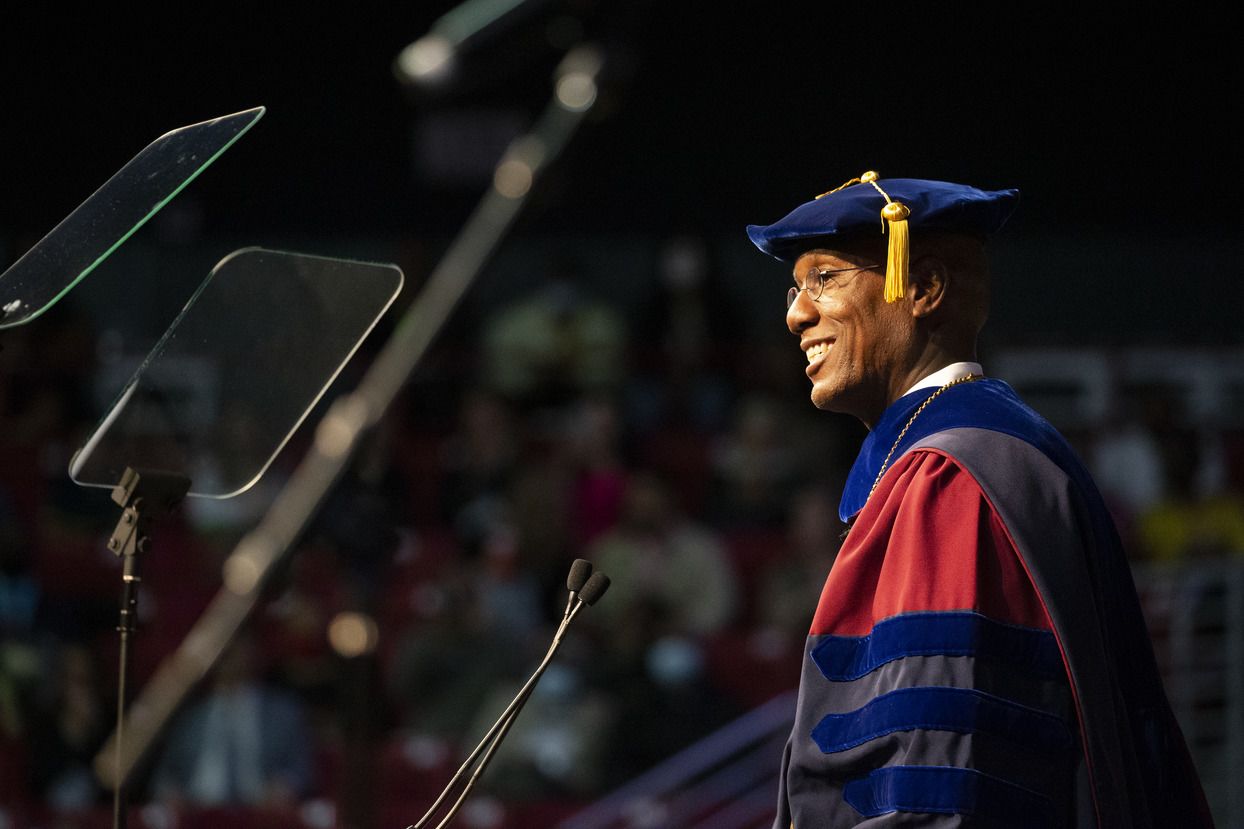Really connect
As we round the corner on President Jason Wingard’s first year in office, learn about the guiding forces and core values shaping his vision for our university and the future of higher education.
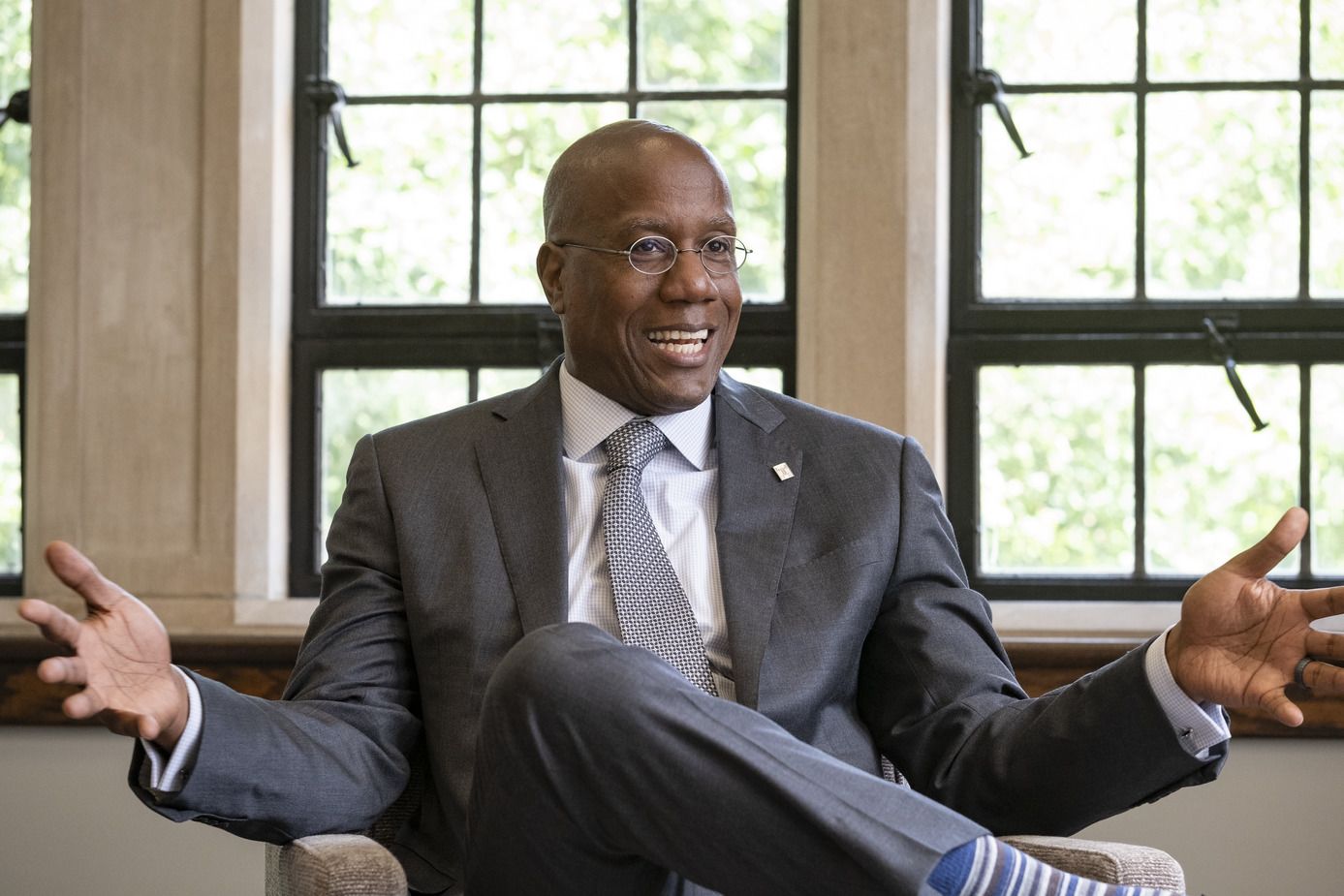
Scroll through @JasonWingard, the Instagram account of Temple University President Jason Wingard, and his status as Temple’s chief ambassador becomes crystal clear.
You’ll find him posing, shaking hands or otherwise engaging with a wide range of fellow university presidents, faculty members, deans, city and state officials, corporate CEOs, alumni changemakers, local residents, students, and the list goes on.
Here are just a few.
Ben Hasan, FOX ’83, vice president for DEI, Walmart
Jacqueline Maguire, Philadelphia FBI head
Michael Fitts, Tulane University president
Paul Alivisatos, University of Chicago president
Cami and Gabby, Temple students
Arthur Johnson, Temple University athletic director
Candrice Heath, dermatologist, Temple University Hospital
Matt Dewhurst and Nolan Lortz, Class of 2025
Manny Williams, Temple University Campus Safety officer
Temple deans and faculty leaders
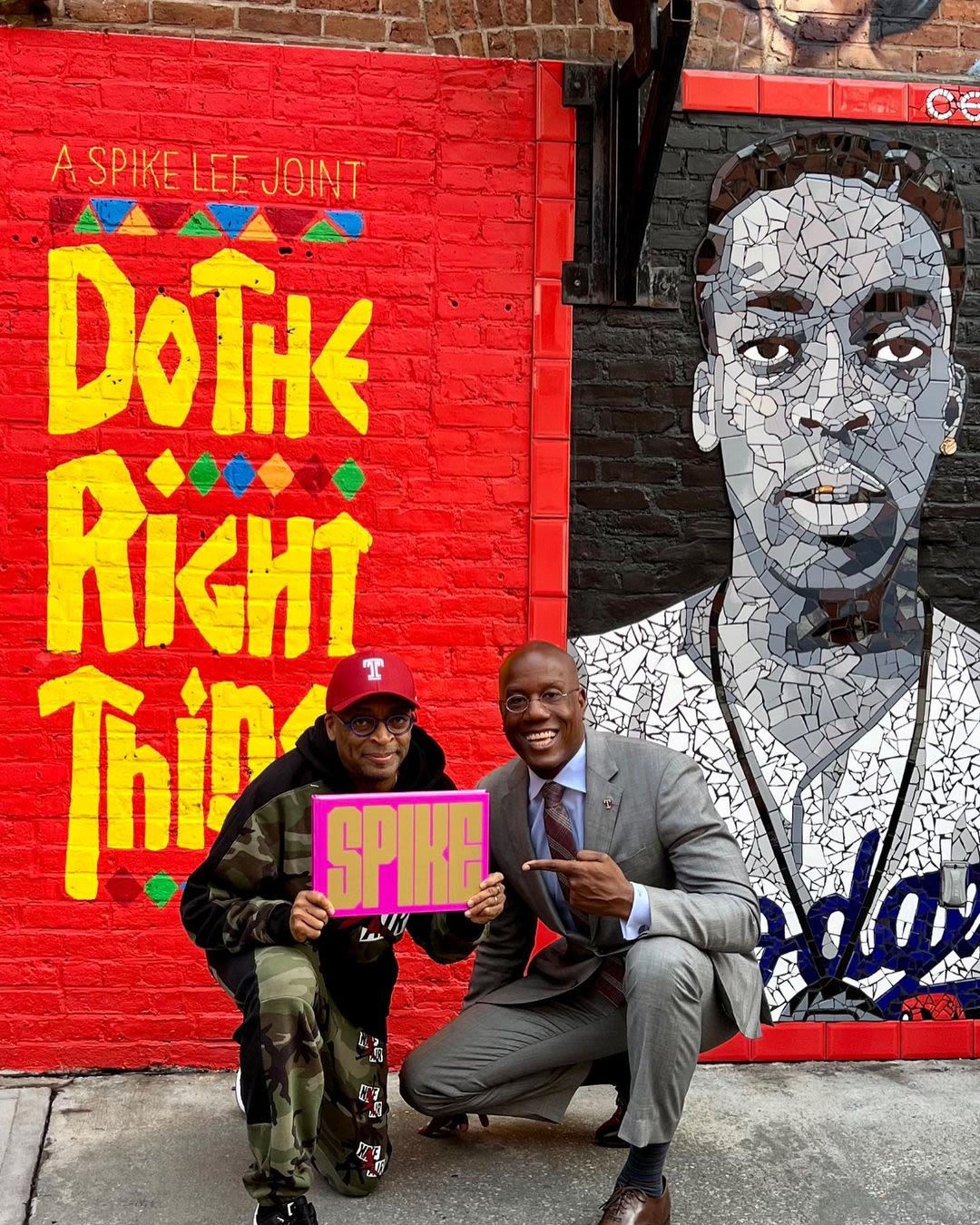
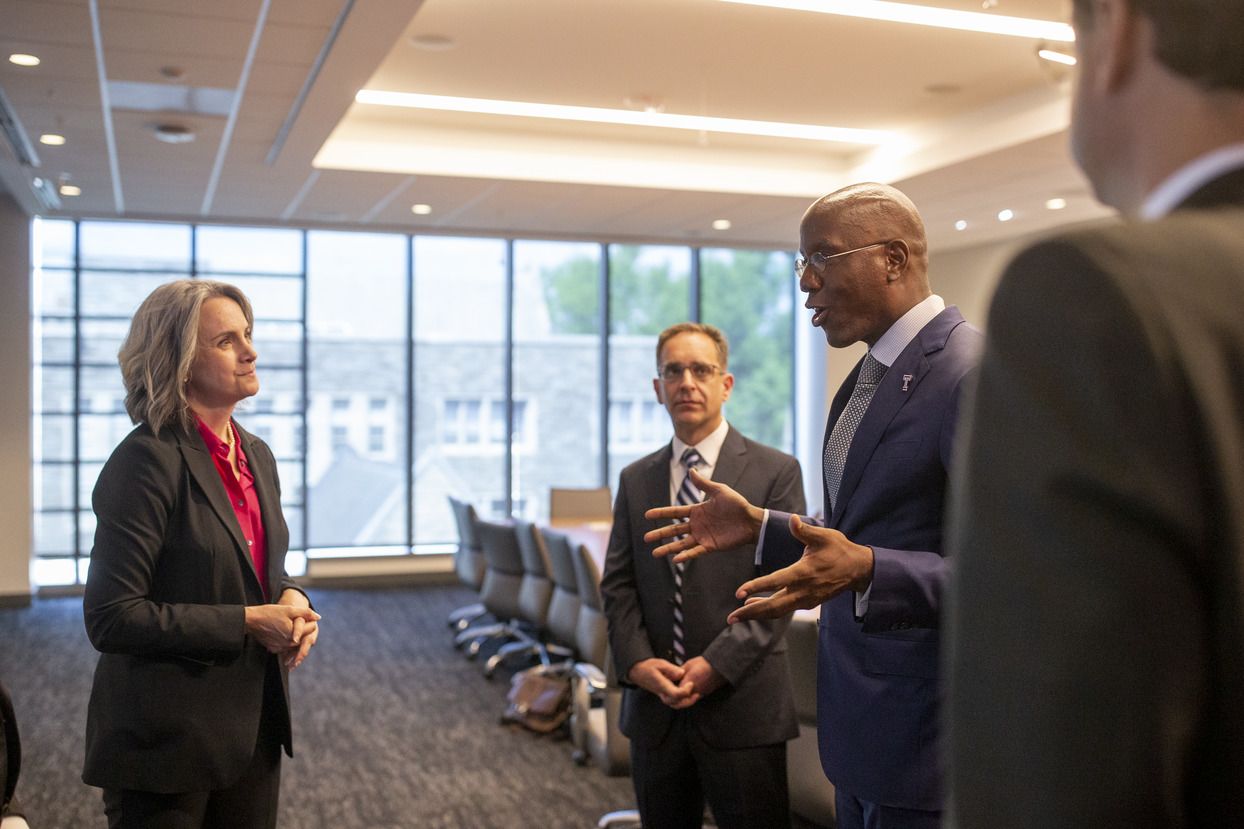
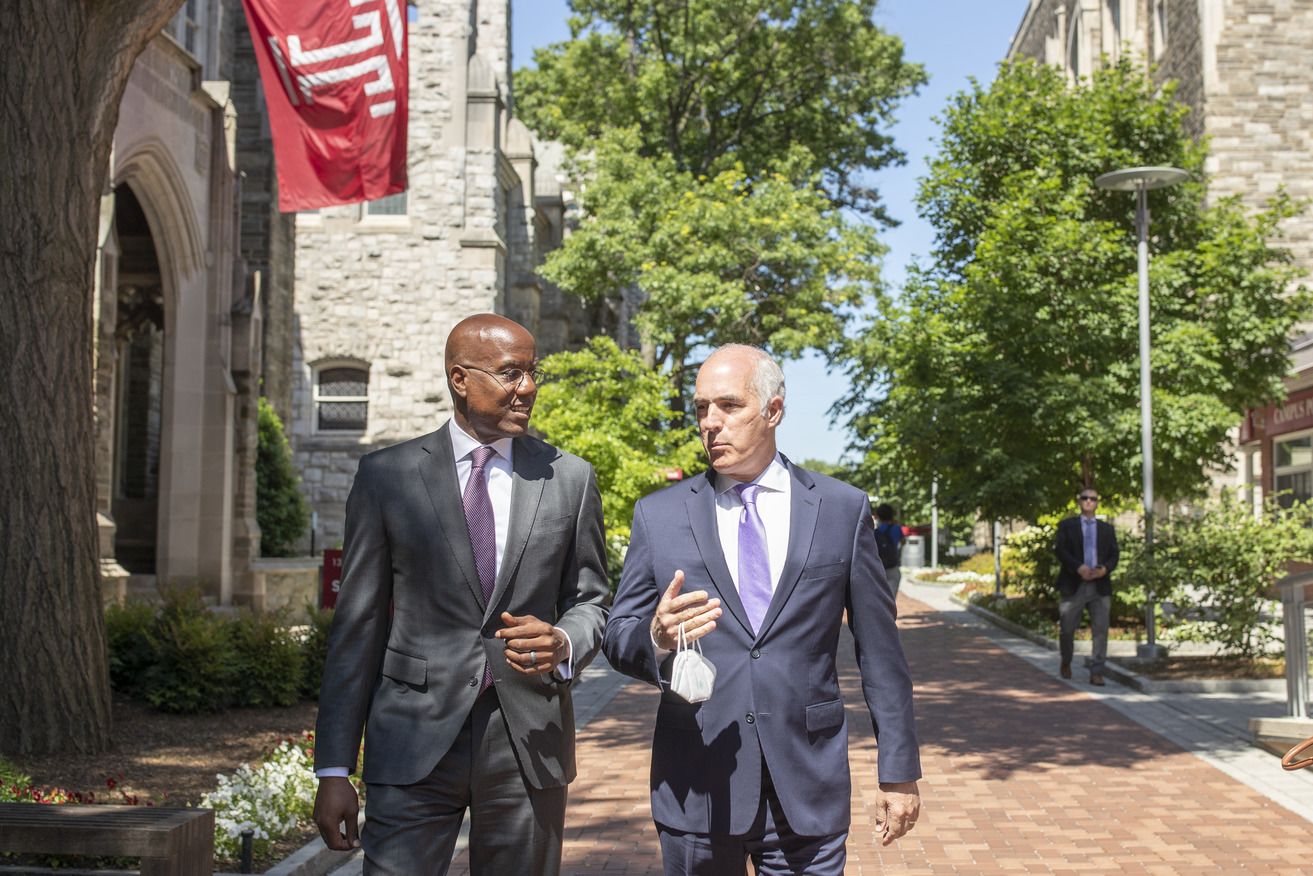
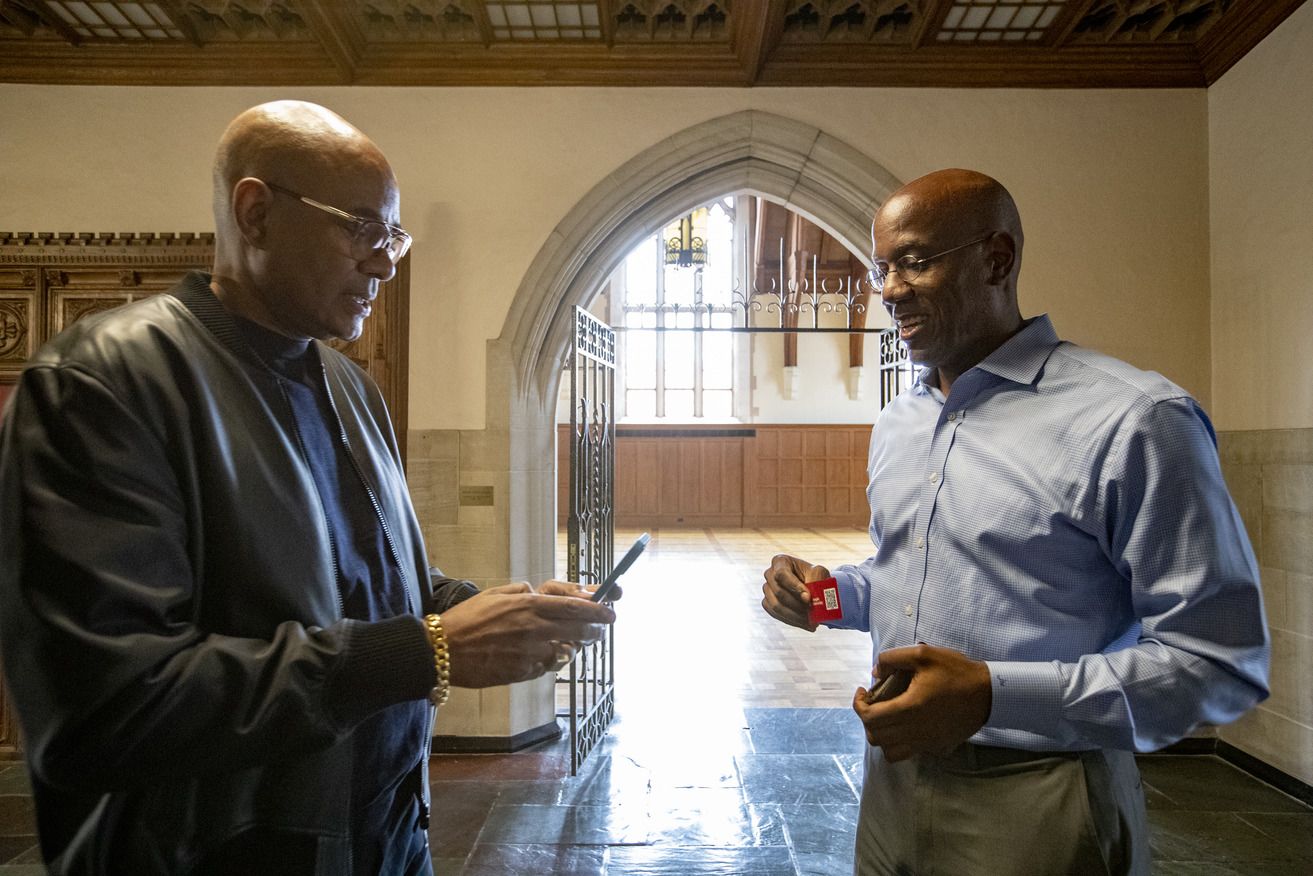




It’s President Wingard’s modus operandi on full display: As we face critical challenges—including a health pandemic, social polarization, rising gun violence, an opioid epidemic, inflation and global military conflict—we are stronger together.
Since taking office in July of 2021 as the university’s first Black president, Wingard has focused on strengthening connections that can make an impact across the full range of the university’s communities: the North Philadelphia residential community, the corporate community, the Philadelphia civic community, the global community, the LGBTQIA+ community, the arts and culture community, etc.
“Of course, as a university president, it’s about budgets and governance and so forth, but my number one goal is making connections and leveraging them for maximum impact across all of Temple’s communities,” explained Wingard. “I want Temple to be the leading convenor of stakeholders around the city and the country to solve problems.”
“I want Temple to be the leading convenor of stakeholders around the city and the country to solve problems.” —Jason Wingard
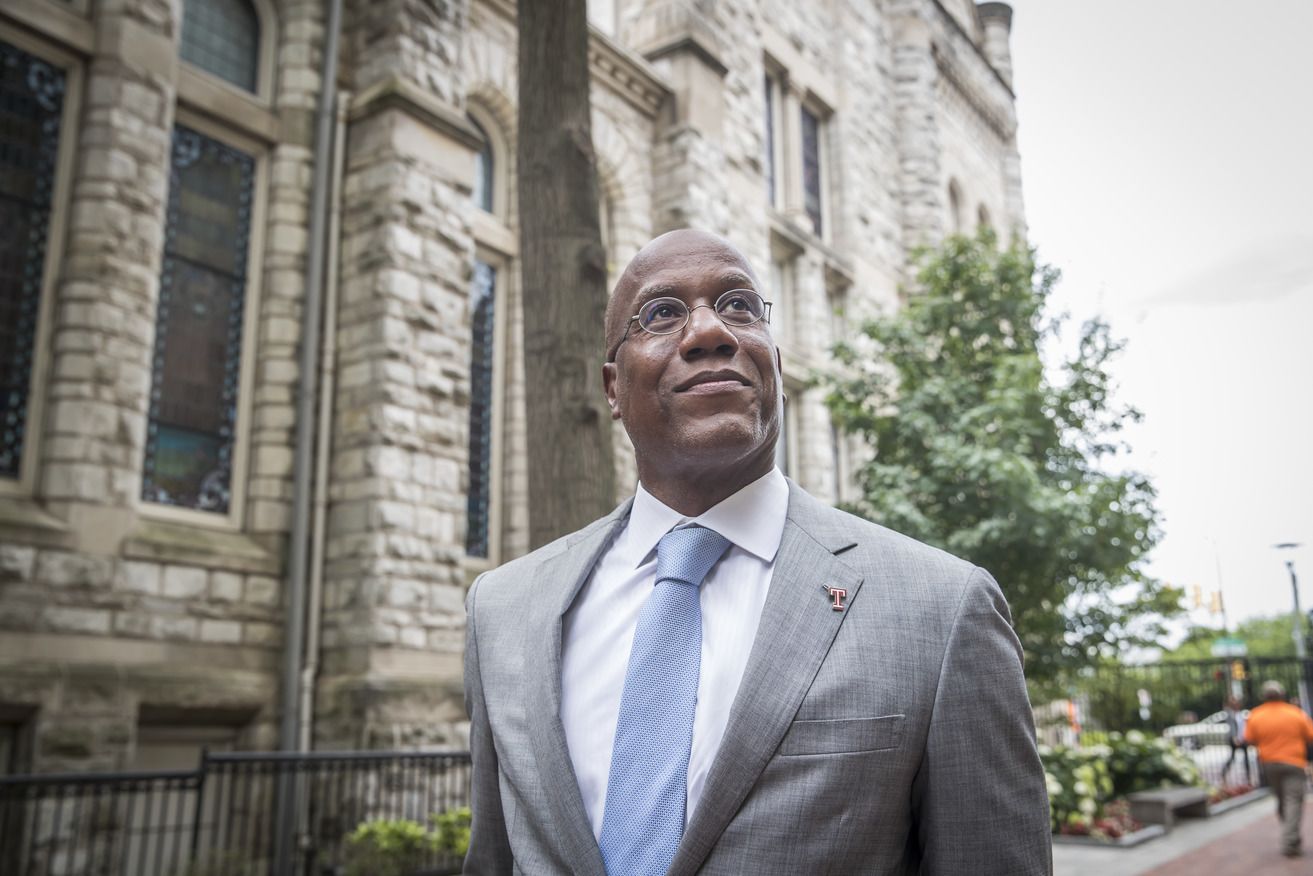
Relationship-builder in chief
That core value of building relationships has been integral to Wingard’s professional success as a globally renowned thought leader in the areas of leadership development, professional learning and the future of work. Likewise, it’s grounded him as he served in top positions, as dean of the School of Professional Studies and professor of human capital management at Columbia University; chief learning officer of Goldman Sachs; and cross-functional executive roles at Stanford University, ePals, the Aspen Institute, Silicon Graphics and the Vanguard Group.
And it’s why he chose Temple, why he believes he can make a difference here. “This is a city of neighborhoods and relationships,” said Wingard. “I grew up just outside of Philly and I’ve lived in Chestnut Hill for 21 years, and in between, I’ve lived in California, Boston, Atlanta, D.C. and New York. Along the way, I’ve built deep connections and developed a real affinity for this region.”
As an example, he cites the former University of Pennsylvania Provost Vincent Price, the current Duke University president.
“This is a mentor and a relationship I can draw from to help us get things done here at Temple, especially when we talk about one of my main priorities of maintaining access and inclusion opportunities at the university for members of underserved groups,” he said.
It’s also the impetus behind his creation this year of two task forces, bringing together faculty and administrators from all areas of the university, to address campus safety concerns and mental health and wellness issues, respectively.
As well, it led to the establishment of the Blue Ribbon Commission on Antisemitism and University Responses, connecting faculty and Jewish leaders from across the Greater Philadelphia area to collaborate on enhancing and supporting the experience of Temple’s Jewish campus community.
And it’s what drives him to author books, articles and opinion pieces.
His op-eds often appear in national publications, he shares his thoughts on topics impacting higher education on his LinkedIn account (one, for example, outlined the need to increase the number of Black males enrolling in medical school) and he makes regular contributions to Forbes.
Last April, as homicides near urban universities reached crisis levels, he outlined in the Chicago Tribune ways that colleges can implement immediate and long-term solutions to gun violence.
A new book, his fifth, The College Devaluation Crisis: Market Disruption, Diminishing ROI, and an Alternative Future of Learning, is set for release in August 2022.
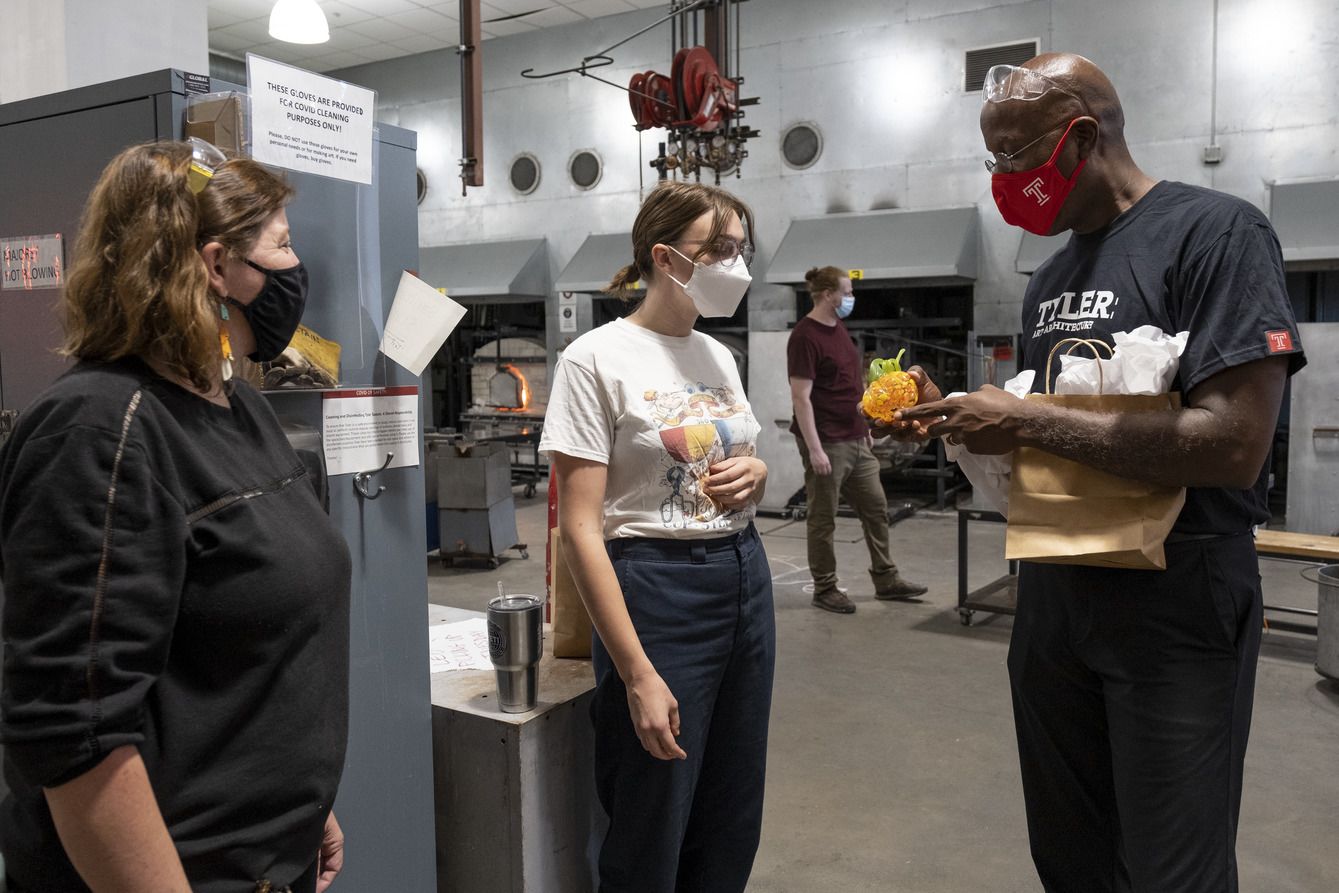
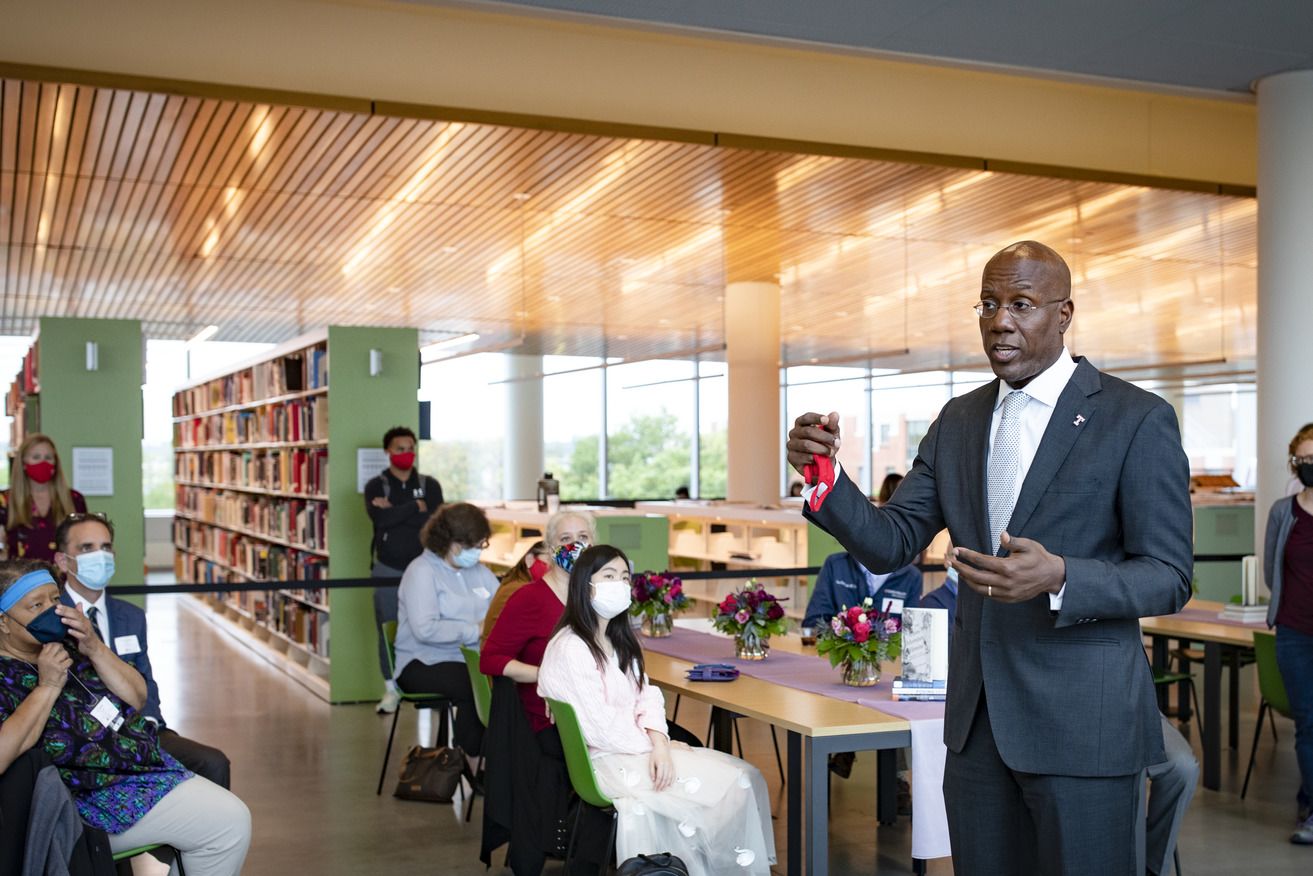
Create impact
The driving force behind Wingard’s leadership vision started—in part—with John Chaney.
Growing up in West Chester, Pennsylvania, a young Jason Wingard first met the legendary Hall of Fame basketball coach at a basketball camp held at nearby Cheyney College (now named Cheyney University).
“He carried himself with intensity and his presence commanded the respect of a superhero,” said Wingard of the former Temple Owls head coach, remembering the experience from the perspective of his 5-year-old self.
Fast forward a few years: Middle school-aged Wingard attended basketball camp on Main Campus while his father, Dr. Levi Wingard, now a retired public school superintendent in the Downingtown Area School District, pursued his graduate studies at Temple. Once again, Wingard got the opportunity to see Chaney firsthand and once again, the coach made a lasting impression.
“He always seemed to be working harder than everybody else, and one thing was crystal clear: He expected the same effort and excellence from everyone around him,” Wingard said.
Later, as an adult, while serving as vice dean at the University of Pennsylvania’s Wharton School, Wingard would again periodically run into his old friend “holding court” in the Walnut Lane Golf Club: “That’s when he would pull me aside, ask how I was doing, and encourage me to use my platform to create impact.”
Chaney’s “Call to Action” (as Wingard refers to it) has become for him a mantra, forming the basis for how he interacts with the world around him.
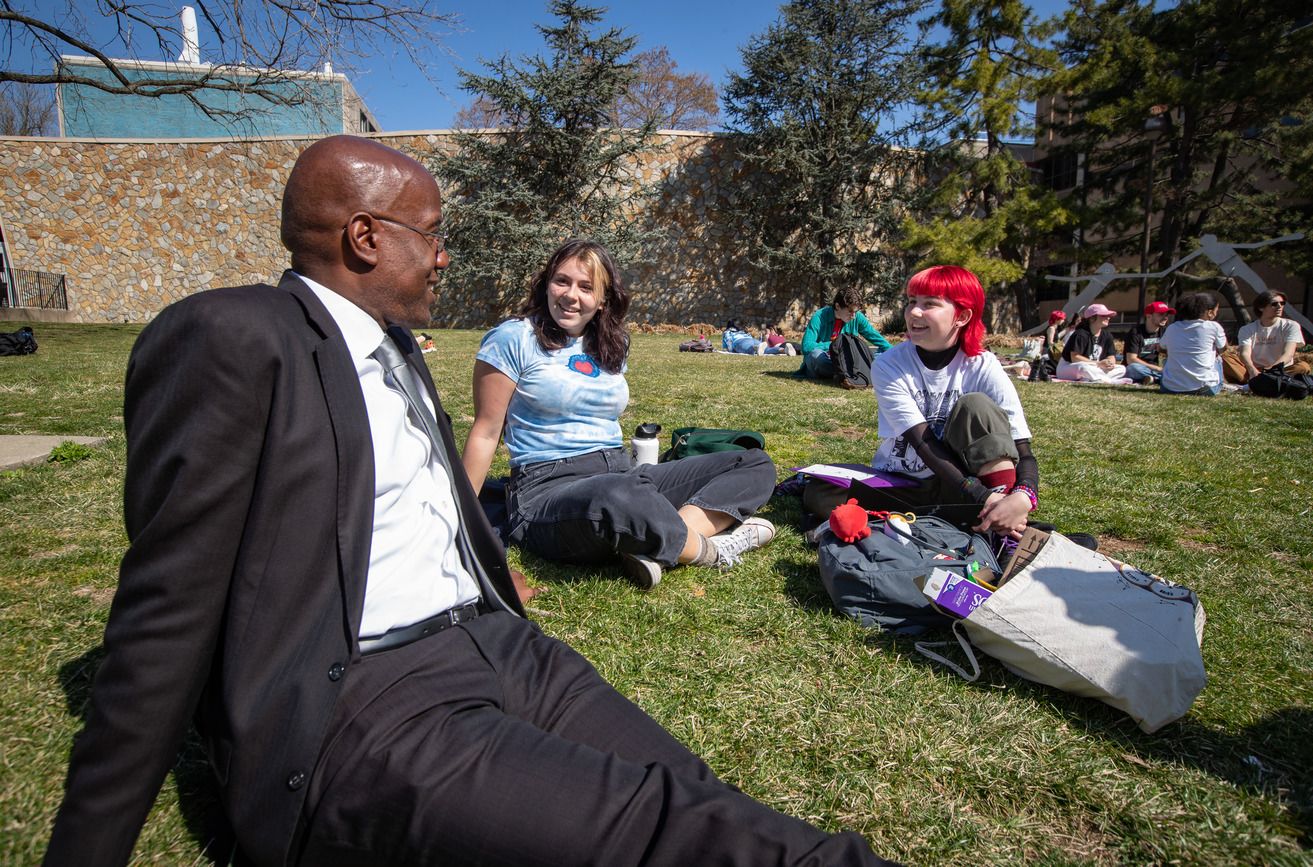
Carrying the ball
As a former student-athlete at Stanford University, Wingard brings a wealth of knowledge to his role at the helm of a Division I school. He recognizes the value that athletics adds to an institution of higher education and stays up to date on the changing landscape, such as the NCAA’s name, image and likeness rulings, newly formed collectives and transfer portals—even weighing in with a recent opinion piece, “Name, image, likeness, and finally some fairness: College Athletics’ brave new world.”
He’s also been an outspoken critic of the NFL for not having more Black leadership. And it’s more than just talk. Wingard’s installment of Arthur Johnson as athletic director and Stan Drayton as head football coach makes Temple the only Football Bowl Subdivision school in the country to have a Black president, a Black athletic director, and Black head coaches in the sports of football and men’s and women’s basketball.
But the experience of being a college student-athlete instilled in the Henderson High School high academic achiever, a standout athlete and class president something more … a notion of teamwork that carries over into every aspect of his life and work.
“Up to that point, I had always been at the top, but all of a sudden, I was out of my depth,” said Wingard. “It was harder at Stanford—both in the classroom and on the field.”
He soon learned, however, how to expertly manage his time, and more importantly, how to be a supporting cast member.
“At the 1991 Aloha Bowl on Christmas Day when Stanford played against Georgia Tech, I was on the sidelines,” remembered Wingard. “I was a red shirt, and I had worked hard to help them get to the Bowl game, but I wasn’t playing. At that moment, I realized that on a winning team, everyone contributes … not just the one who is carrying the ball.”
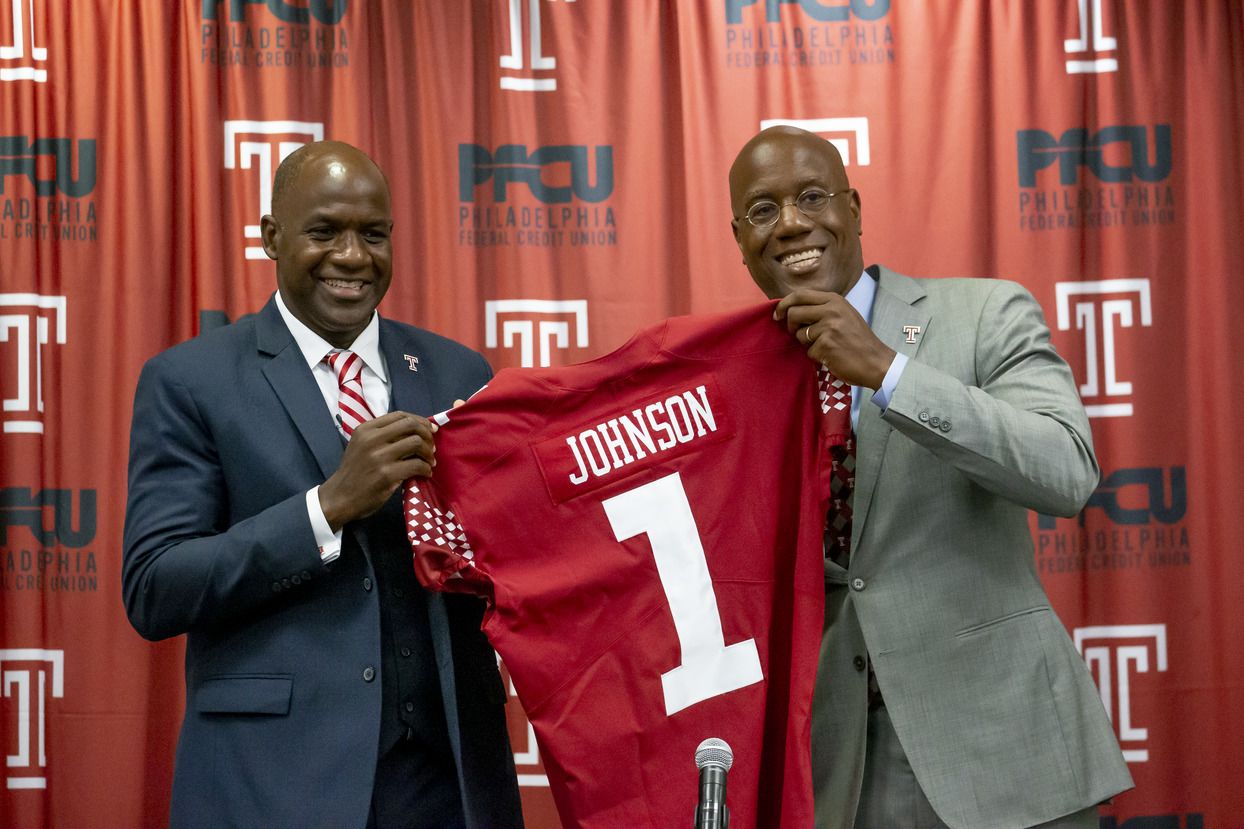
President Wingard and the Temple community welcomed Arthur Johnson as vice president and director of Athletics at Temple University in October 2021.
President Wingard and the Temple community welcomed Arthur Johnson as vice president and director of Athletics at Temple University in October 2021.
More than a wife
One of the first local news reports announcing Wingard’s appointment as Temple president made the mistake of labeling an image of Gingi Wingard as “wife.”
President Wingard quickly responded on his Instagram account with a screen capture of the report and the caption, “More than wife.”
It’s a sentiment the Temple community has learned is more than true. Temple’s first lady can be seen frequently accompanying her husband to university events or on her own; volunteering to help beautify North Broad Street, for example, on Temple Made Days; or serving as the keynote speaker at Lavender Graduation, a ceremony celebrating the achievements of Temple’s LGBTQIA+ student community.
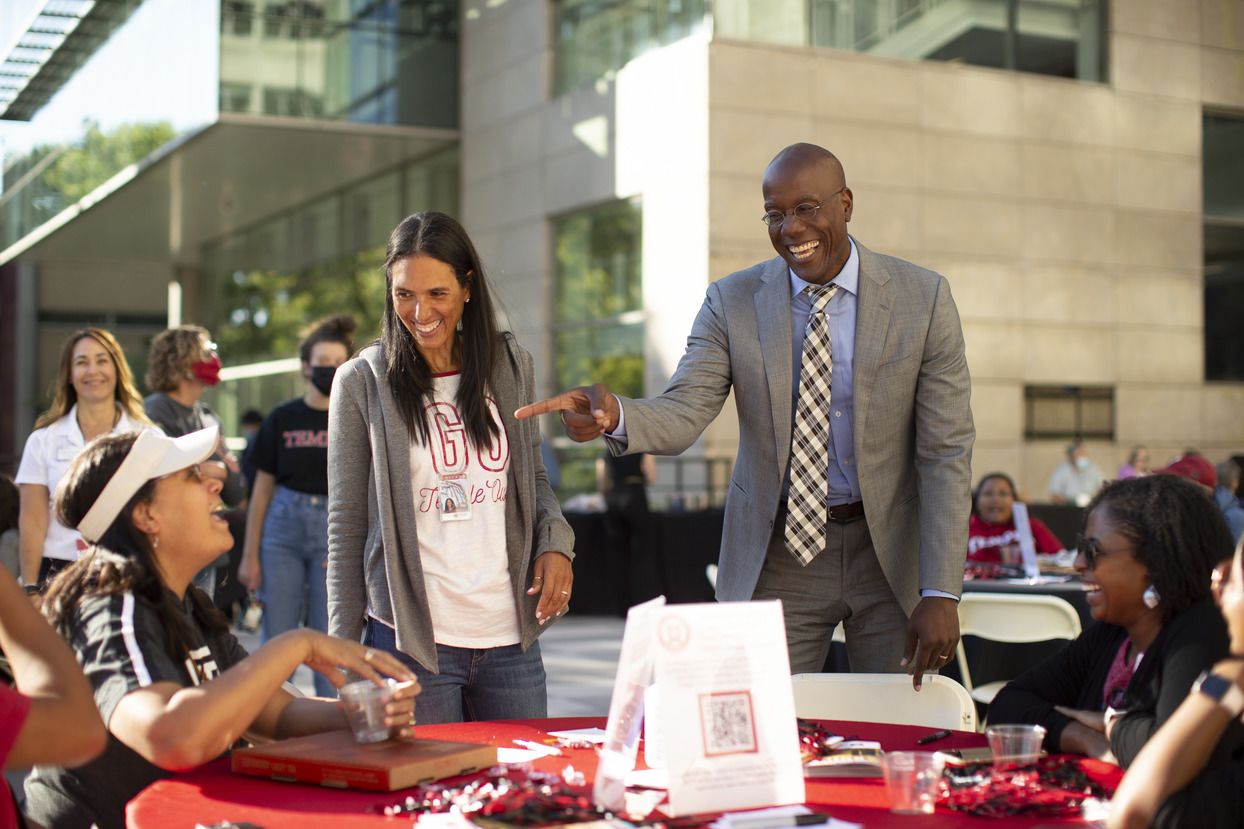
President Wingard and his wife, Gingi, meet with Owls and their families during Temple's Homecoming Family Weekend.
President Wingard and his wife, Gingi, meet with Owls and their families during Temple's Homecoming Family Weekend.
The couple met during their first year at Stanford and they have been together ever since—though the circumstances leading to their first date may be up for debate, depending on whom you ask.
“Here’s my version,” he explained. “I met Gingi when I visited some of my friends who lived in her dorm. A couple of weeks later, she called and said several of them wanted to go to Burger King and asked if I could drive them because I had a car.
“Well, when I got there to pick them up, it somehow turned out that she was the only one going,” Wingard explained, while raising his hands in the air as if asking, who knows?
Since then, the pair, who have been married 25 years, have supported each other as they each pursued advanced degrees and are currently in the midst of raising five children. Their commitment to family is more than apparent. Each year, they celebrate their wedding anniversary on Sept. 21 along with both of their parents, who were also, coincidentally, each married on Sept. 21 as well.
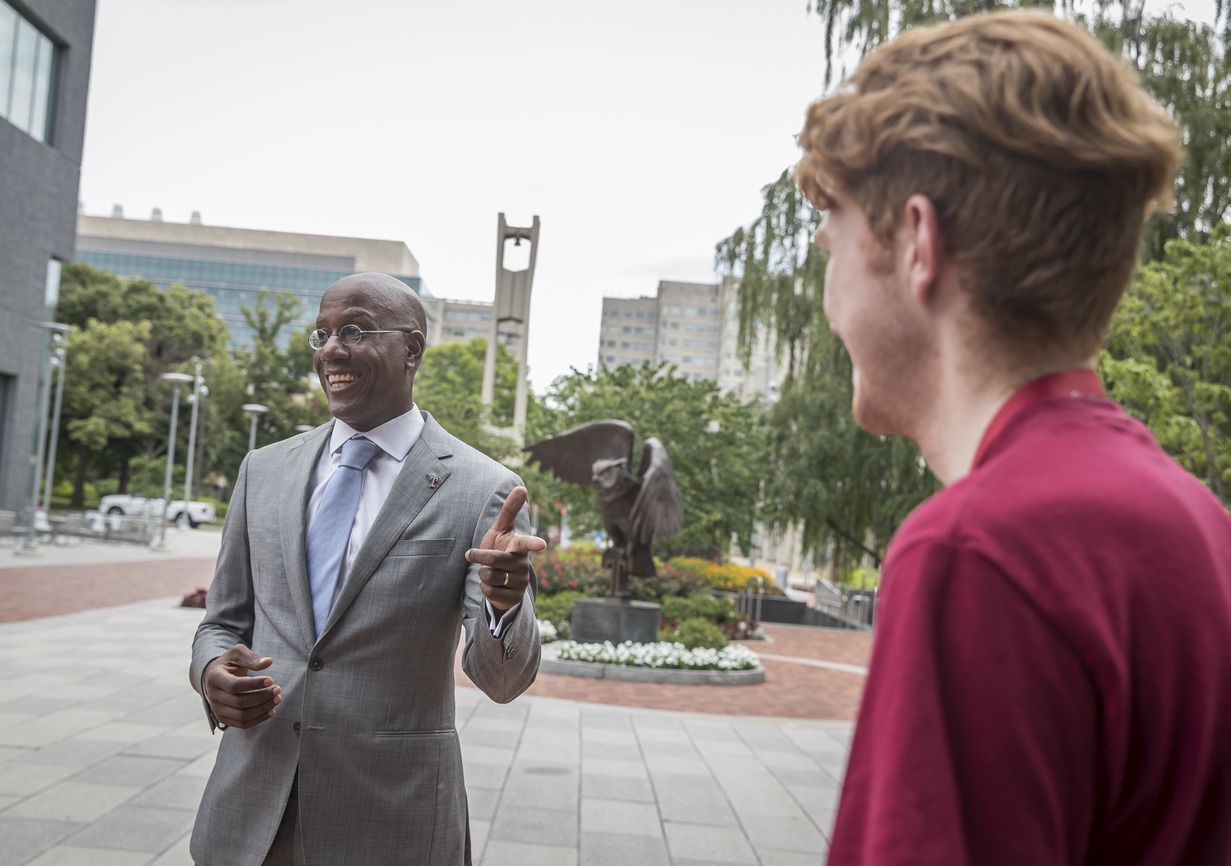
President Wingard is committed to preparing Temple students for the future of work.
President Wingard is committed to preparing Temple students for the future of work.
The challenge ahead
Now, as Gingi Wingard completes her coursework toward a doctorate at Temple’s College of Education and Human Development, with a focus on grades K–12, Jason Wingard is drawing on his expertise in the professional and corporate realm to lead Temple to new heights.
“The first thing universities have to recognize is that their value proposition has shifted,” he said. “For so many years it worked to do things the same way—using the same curriculum … the same mode of instruction … the same model for career placement. But that just isn’t working anymore.”
According to Wingard, the future of work requires that we pivot to meet the economy’s needs and adapt to what employers are looking for. “If we don’t do that, we render ourselves irrelevant,” he contends.
It’s a challenge that requires all areas of the university to work together and demands that we, in higher ed, reach out to bridge divides and create strong connections with our neighbors and our external partners, in the city, across the country and beyond.
It’s a challenge President Wingard has been preparing for his whole life.
President Wingard’s advice to the Class of 2022:
On May 5, 2022, the Temple community gathered to celebrate the university’s 135th Commencement, the first in-person ceremony in three years and the first held under the leadership of President Jason Wingard. Here are the words of wisdom he shared with the new graduates.
1. Be bold.
2. Stay educated.
3. Really connect.
4. Protect authenticity.
5. Create impact.
